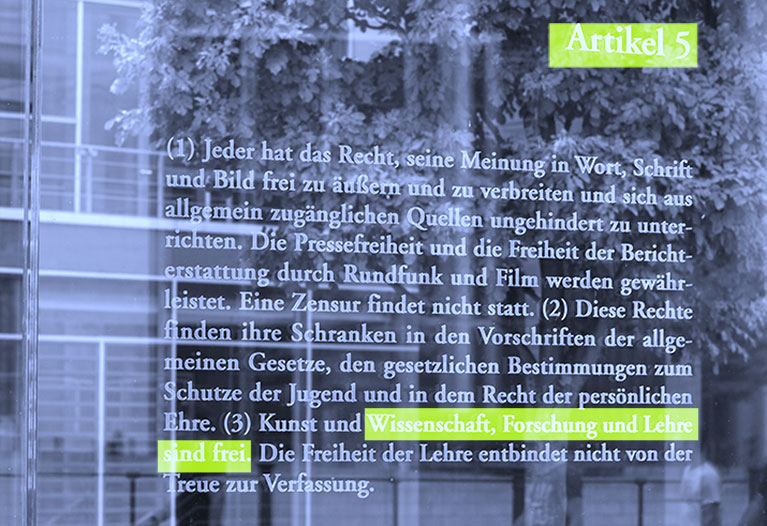Promote Free Scientific Exchange: Yehudit and Yehuda Elkana Fellowships
There is less and less free space for scientifically controversial discussions. The Yehudit and Yehuda Elkana Fellowship Program wants to create this space for scientists.
The conditions for the free circulation of knowledge and the unhindered exchange of scientific hypotheses have deteriorated in recent years around the world. The polarization and rigidifying of public debates are increasing, and societal and political forces are intervening more frequently in research and teaching, to the point that researchers are being persecuted, expelled, or deprived of their liberty. This narrows the scope for scientific controversies, which are the indispensable precondition for academic work.
The Yehudit and Yehuda Elkana Fellowship Program invites researchers who have served the free exchange of knowledge and hypotheses and the open scope for academic controversies to spend three to five months at the Wissenschaftskolleg zu Berlin - Institute for Advanced Study. The Fellowship is tied to financial support of up to 50,000 Euros for projects that aim to preserve free scientific exchange. The program is funded by the Volkswagen Foundation and the Marga und Kurt Möllgaard-Stiftung.

Die Freiheit der Wissenschaft ist in Deutschland im Grundgesetzt verankert. In vielen anderen Ländern gilt dieser Grundsatz nicht. (Foto: Emile Noir - stock.adobe.com)
Applications for the Yehudit and Yehuda Elkana Fellowships are not possible; funding decisions are made solely on the basis of nominations.
For further information on the programme, please contact
Vera Kempa
Wissenschaftskolleg zu Berlin
Tel. +49 30 89001 157, EMail
Advisory Board
- Elçin Aktoprak, The School of Human Rights Association, Ankara
- Constantin Ardeleanu, New Europe College, Bukarest
- Gábor Egry, Institute of Political History, Budapest
- Iryna Kashtalian, Gedenkstätte Buchenwald, Weimar
- Ivan Krastev, Centre for Liberal Strategies, Sofia
- Noémi Lévy-Aksu, Truth Justice Memory Center Hafiza Merkezi, Istanbul
- Viktoriya Sereda, Virtual Ukraine Institute for Advanced Study, Berlin
- Tatiana Shchyttsova, European Humanities University, Vilnius
- Olga Shparaga, European College of Liberal Arts in Belarus, Minsk
- Balázs Trencsényi, Central European University, Budapest
- Magdalena Waligórska, Humboldt-Universität zu Berlin
Selection Committee
- Susanne Frank, Humboldt-Universität zu Berlin
- Julika Griem, Kulturwissenschaftliches Institut Essen
- Lisa Herzog, Reichsuniversität Groningen
- Kader Konuk, Technische Universität Dortmund
- Daniel Schönpflug, Wissenschaftskolleg zu Berlin
- Martin Schulze Wessel, Ludwig-Maximilians-Universität München
- Barbara Stollberg-Rilinger, Wissenschaftskolleg zu Berlin
In advisory capacity
- Henrike Hartmann, VolkswagenStiftung, Hannover
- Heinz-Rudi Spiegel, Marga und Kurt Möllgaard-Stiftung, Essen
